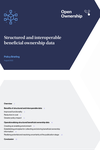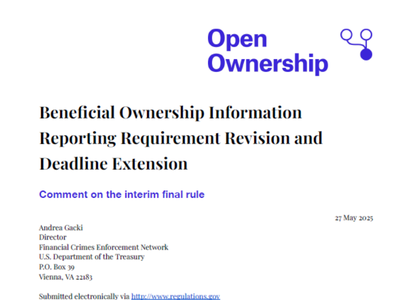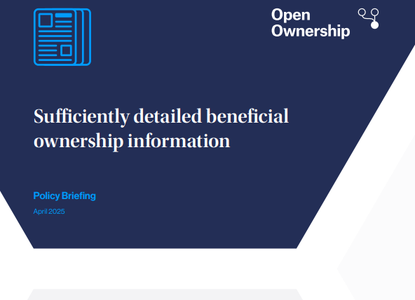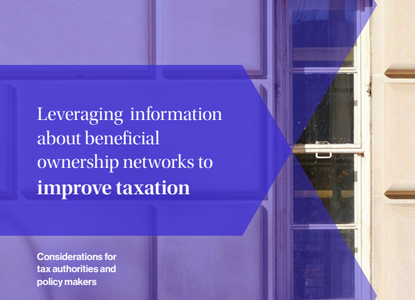Structured and interoperable beneficial ownership data
Help us understand how you are making use of resources from the Open Ownership website by filling out this short survey
Publication type
Briefing
Publication
Topics
Beneficial Ownership Data Standard
Sections
Implementation,
Research,
Technology
Open Ownership Principles
Structured data
Summary
This policy briefing outlines the key benefits of collecting, storing, and publishing structured beneficial ownership data, and how this improves its functionality, reduces costs, and leads to greater policy impact. It highlights the key legal, policy and technical aspects that implementers need to consider in order to operationalise structured beneficial ownership data
Key points
- To maximise the impact of BOT reforms, a disclosure regime should collect, store, and publish BO information as structured data.
- Structuring data creates information that is predictable, which makes it easy to work with and improves its functionality, benefits which apply to both technical and non-technical users.
- Structured BO data has a greater policy impact because it is highly interoperable.
- In order to operationalise structured BO data, implementers should create an enabling legal and policy environment; provide sufficient resources; and employ a user-centred and iterative approach.
A growing number of jurisdictions are starting to publish structured BO data, including publishing to the Beneficial Ownership Data Standard, which is increasing the contextual interoperability – and the utility and value – of the data. As more data becomes available, this information will be ingested into the Open Ownership Register, and Open Ownership will continue to document different use cases and impacts.



